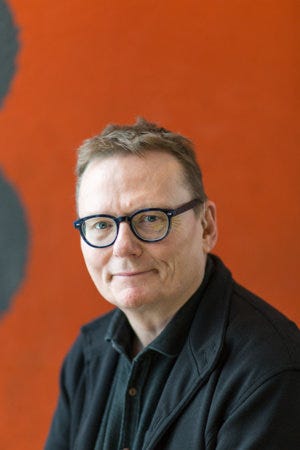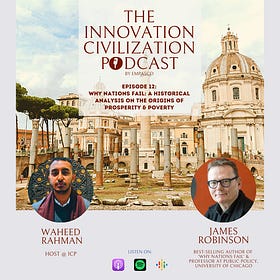2024 Nobel Prize Winner & Co-author of the influential book “Why Nations Fail”, James A. Robinson joined us to discuss the role of political and economic institutions in shaping the success or failure of nations. A political scientist and economist, Robinson is currently a professor at the University of Chicago and one of the world’s leading experts on political and economic development. His research delves into the root causes of poverty, conflict, and economic inequality across the globe.
Robinson's work, particularly in Why Nations Fail, co-authored with Daron Acemoglu, argues that the key to a nation's prosperity lies in inclusive institutions that allow for broad participation in economic and political life. The book examines historical and contemporary examples to show how "extractive" institutions can stifle innovation and wealth creation by concentrating power in the hands of a few, while "inclusive" institutions foster growth and shared prosperity by empowering a broader spectrum of society University of Chicago Harris Wikipedia
Why Nations Fail: A Historical Analysis on the Origins of Prosperity & Poverty
You can listen to it by clicking on your favorite podcast platform of choice, as above.
Biography
James Robinson has held numerous academic and advisory roles, including teaching positions at Harvard University before joining the University of Chicago. His research is global in scope, with significant fieldwork conducted in Latin America and sub-Saharan Africa. He has contributed extensively to understanding how institutions evolve and the political and economic dynamics that drive societal change
Thought Leadership
Robinson’s work has influenced both scholars and policymakers by challenging traditional theories of development that emphasize geography or culture. He argues that political institutions, and the power structures they create, are the real drivers of inequality and stagnation. His research continues to shape how we understand the long-term effects of institutional frameworks on economic outcomes.


